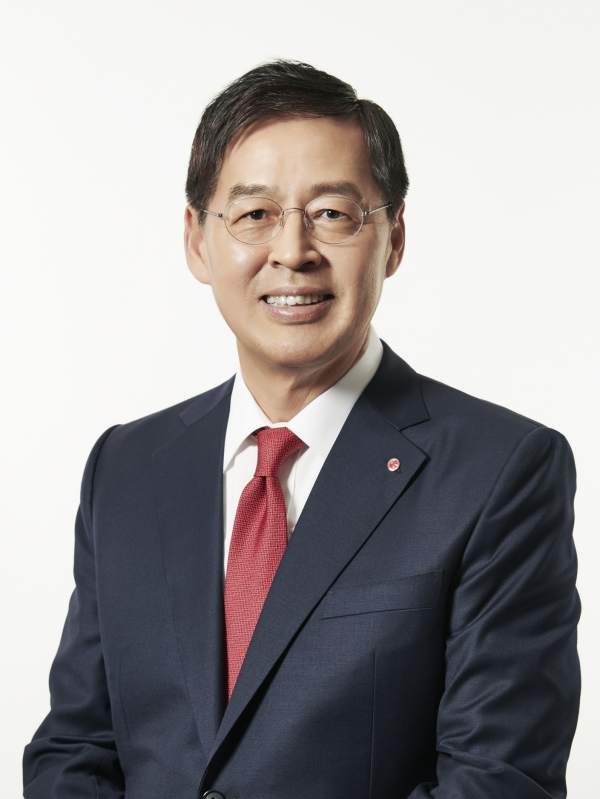
Shin Hak-cheol, CEO and Vice Chairman of LG Chem
According to FnGuide on the 22nd, LG Chem is expected to post second-quarter consolidated sales of KRW 11.1849 trillion and operating profit of KRW 436.8 billion. This would mark an 8% drop in sales from the previous quarter, but a return to the black in operating profit. The company has posted losses for two consecutive quarters since the fourth quarter of last year.
Notably, the operating profit consensus jumped 21.1% in just one month to KRW 435.8 billion from KRW 359.9 billion, reflecting the earnings surprise from battery subsidiary LG Energy Solution, which reported earnings above expectations earlier this month with an operating profit of KRW 492.2 billion.
However, the outlook for LG Chem’s other businesses outside of Energy Solution remains weak.
The petrochemical division is expected to post an operating loss of about KRW 50 billion, marking four straight quarters in the red, as global demand remains sluggish and low-price competition from China continues.
The advanced materials business, which relies heavily on battery cathode materials, is expected to post operating profit of KRW 49 billion—a roughly 60% decline from the previous quarter. LG Energy Solution’s strong results were helped by U.S. subsidies, but this has had little positive spillover on materials businesses.
With core operations struggling and profitability weakening, the burden of ongoing large-scale investment in battery and other transformational businesses is increasing. LG Chem’s total borrowings have surged from about KRW 16 trillion at the end of 2022 to KRW 29.4 trillion as of the end of March 2025.
With earnings weak and investment spending rising, external financing has become an unavoidable choice.
The company’s 81.8% stake in LG Energy Solution is constantly cited as a potential solution for raising funds. LG Chem previously considered selling a portion of its Energy Solution shares, but the plan was not executed. At the regular shareholders’ meeting in March, Vice Chairman Shin Hak-cheol responded to a related question by describing it as “one of several options,” neither confirming nor ruling it out.
However, Shin appears to prioritize shoring up liquidity without undermining core strategy. LG Energy Solution is a strategic asset that can benefit from future investments in next-generation technologies like solid-state batteries and U.S. Inflation Reduction Act subsidies. A hasty sell-off for short-term funding could compromise mid- to long-term growth, necessitating a cautious approach.
Instead, LG Chem is stabilizing its finances by selling non-core businesses. Last month, the company sold its water treatment filter business within the advanced materials division to a private equity fund for KRW 1.4 trillion. This business generated EBITDA (earnings before interest, taxes, depreciation, and amortization) of KRW 65 billion last year, but was classified as non-core outside the three main focuses of batteries, eco-friendly materials, and new drugs, and was thus divested. Previously, the company also offloaded its life sciences medical device business (KRW 150 billion) and display polarizer business (KRW 1 trillion) at the end of 2023.
Gwak Horyung (horr@fntimes.com)




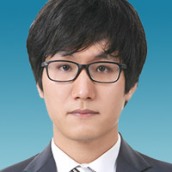













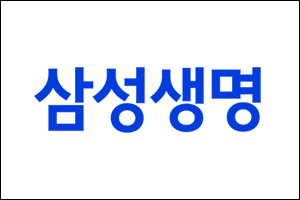




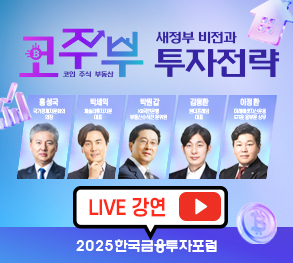







![‘리니지 제국'의 부진? 엔씨의 저력을 보여주마 [Z-스코어 기업가치 바로보기]](https://cfnimage.commutil.kr/phpwas/restmb_setimgmake.php?pp=006&w=69&h=45&m=5&simg=2026020123095403419dd55077bc211821821443.jpg&nmt=18)

![[DCM] 한화시스템, FCF 적자 불구 시장조달 자신감](https://cfnimage.commutil.kr/phpwas/restmb_setimgmake.php?pp=006&w=69&h=45&m=5&simg=2026020204171101504a837df6494123820583.jpg&nmt=18)













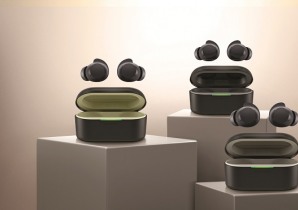
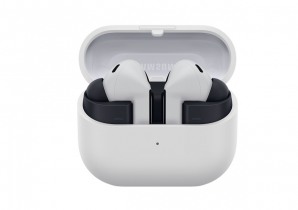
![[그래픽 뉴스] 워킹맘이 바꾼 금융생활](https://cfnimage.commutil.kr/phpwas/restmb_setimgmake.php?pp=006&w=298&h=298&m=1&simg=202602021638156443de68fcbb3512411124362_0.jpg&nmt=18)
![[그래픽 뉴스] 매파·비둘기부터 올빼미·오리까지, 통화정책 성향 읽는 법](https://cfnimage.commutil.kr/phpwas/restmb_setimgmake.php?pp=006&w=298&h=298&m=1&simg=202601281456119025de68fcbb3512411124362_0.jpg&nmt=18)
![[그래픽 뉴스] 하이퍼 인플레이션, 왜 월급이 종잇조각이 될까?](https://cfnimage.commutil.kr/phpwas/restmb_setimgmake.php?pp=006&w=298&h=298&m=1&simg=202601141153149784de68fcbb3512411124362_0.jpg&nmt=18)
![[그래픽 뉴스] 주식·채권·코인까지 다 오른다, 에브리싱 랠리란 무엇일까?](https://cfnimage.commutil.kr/phpwas/restmb_setimgmake.php?pp=006&w=298&h=298&m=1&simg=202601071630263763de68fcbb3512411124362_0.jpg&nmt=18)
![[그래픽 뉴스] “이거 모르고 지나치면 손해입니다… 2025 연말정산 핵심 정리”](https://cfnimage.commutil.kr/phpwas/restmb_setimgmake.php?pp=006&w=298&h=298&m=1&simg=202601061649137526de68fcbb3512411124362_0.jpg&nmt=18)
![[신간] 고수의 M&A 바이블](https://cfnimage.commutil.kr/phpwas/restmb_setimgmake.php?pp=006&w=81&h=123&m=5&simg=2025091008414900330f8caa4a5ce12411124362.jpg&nmt=18)
![[신간] 리빌딩 코리아 - 피크 코리아 극복을 위한 생산성 주도 성장 전략](https://cfnimage.commutil.kr/phpwas/restmb_setimgmake.php?pp=006&w=81&h=123&m=5&simg=2025032814555807705f8caa4a5ce12411124362.jpg&nmt=18)
![[서평] 추세 매매의 대가들...추세추종 투자전략의 대가 14인 인터뷰](https://cfnimage.commutil.kr/phpwas/restmb_setimgmake.php?pp=006&w=81&h=123&m=5&simg=2023102410444004986c1c16452b0175114235199.jpg&nmt=18)


![[신간] 이게 화낼 일인가?](https://cfnimage.commutil.kr/phpwas/restmb_setimgmake.php?pp=006&w=81&h=123&m=5&simg=2026010610254801367f8caa4a5ce12411124362.jpg&nmt=18)

![[AD] 현대차, 글로벌 안전평가 최고등급 달성 기념 EV 특별 프로모션](https://cfnimage.commutil.kr/phpwas/restmb_setimgmake.php?pp=006&w=89&h=45&m=1&simg=20260106160647050337492587736121125197123.jpg&nmt=18)
![[AD] 현대차 ‘모베드’, CES 2026 로보틱스 부문 최고혁신상 수상](https://cfnimage.commutil.kr/phpwas/restmb_setimgmake.php?pp=006&w=89&h=45&m=1&simg=20260105103413003717492587736121125197123.jpg&nmt=18)
![[AD] 기아 ‘PV5’, 최대 적재중량 1회 충전 693km 주행 기네스 신기록](https://cfnimage.commutil.kr/phpwas/restmb_setimgmake.php?pp=006&w=89&h=45&m=1&simg=20251105115215067287492587736121125197123.jpg&nmt=18)
![[카드뉴스] KT&G, 제조 부문 명장 선발, 기술 리더 중심 본원적 경쟁력 강화](https://cfnimage.commutil.kr/phpwas/restmb_setimgmake.php?pp=006&w=89&h=45&m=1&simg=202509241142445913de68fcbb3512411124362_0.png&nmt=18)
![[AD]‘황금연휴에 즐기세요’ 기아, ‘미리 추석 페스타’ 이벤트 실시](https://cfnimage.commutil.kr/phpwas/restmb_setimgmake.php?pp=006&w=89&h=45&m=1&simg=20250903093618029117492587736121166140186.jpg&nmt=18)



